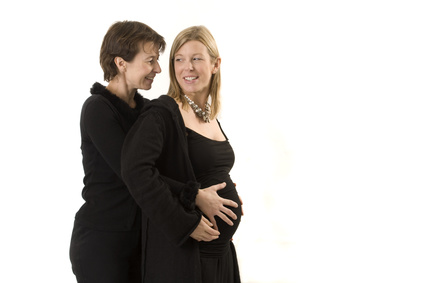Imagine it’s the early eighties, a very different time for the lesbian community. Although coming out to friends, family and co-workers was being encouraged by activists to advance the cause for gay civil rights, living a closeted life was still the stark reality for many if not most lesbians across the country.
It was in this oppressive environment that I decided to move forward on what was then a revolutionary idea: helping lesbians like me become mothers. At the time, I was in private practice as a women’s health care provider. I was also a co-founder of San Francisco’s Lyon-Martin Women’s Health Clinic—named for lesbian activists Phyllis Lyon and Del Martin— which was the first facility in the country specifically devoted to meeting the medical needs of the lesbian community.
The Barriers Lesbians Were Facing Were Pretty Daunting
I heard repeatedly from my lesbian patients that they wanted to have children but were having trouble finding supportive ob/gyns, fertility specialists or sperm banks. That’s why I started Pacific Reproductive Services in 1984 with the mission to provide sperm bank, fertility and insemination services to the lesbian community. Demand for our services grew and so did the number of sperm donors we were able to provide our patients. By 1990, we started shipping sperm across the country.
A Commitment To Provide “Willing To Be Known” Donors
We decided from the beginning to focus on providing clients with donors who are contractually obligated to meet a child born of their donations at least once when he or she reaches 18, at the child’s request. Any additional meetings or communications beyond that point must be mutually agreed upon by the child and the donor.
Although these donors are more challenging to recruit than anonymous donors, they are another important way for us to support our clients. They prefer these donors because they want their children to have the opportunity, if they choose to pursue it, to understand a little more about the other half of their biological heritage.
With more and more children now coming of age, some have chosen to be in contact with their donors. These have been almost universally positive experiences on both sides. There’s no question more children will want to meet their donors in the future but even if some don’t, the main thing for their mothers—and for me— is that they have that option available to them.
Sherron Mills
Sherron is the founder and president of Pacific Reproductive Services

